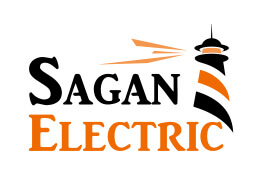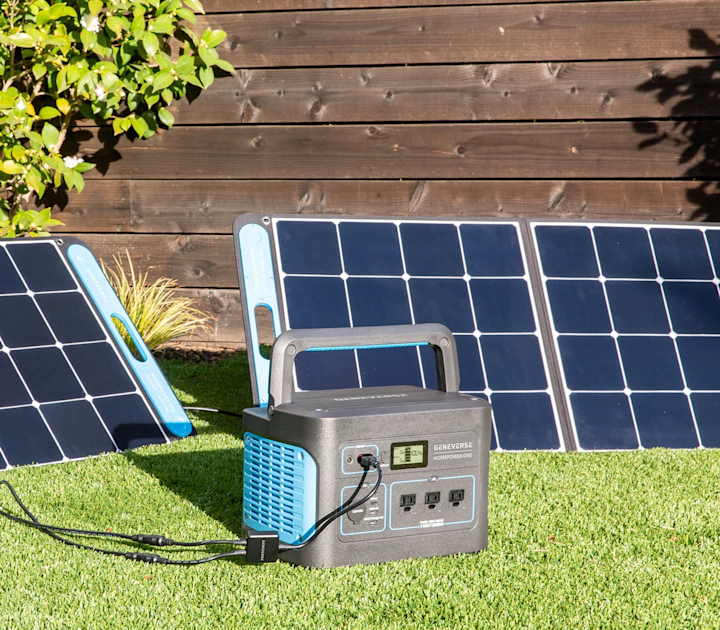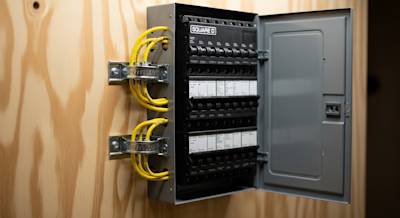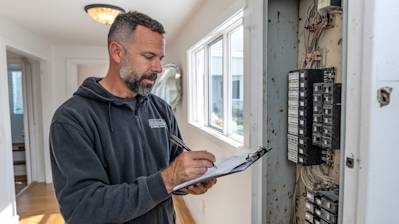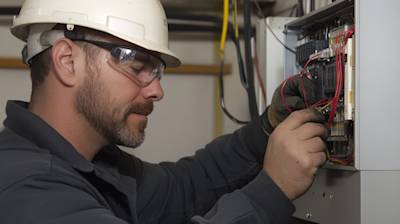With the rising concern for the environment and the increasing cost of traditional electric power, solar generators have become immensely popular among both individuals and companies. As a sustainable and cost-effective alternative, the popularity of solar generators continues to surge, making them a hot topic. This detailed article will dissect the benefits of a solar generator, its functionality, components involved, and paramount considerations before purchasing. Our ultimate aim is to provide all the essential information you need on solar generators.
Understanding The Concept of Solar Generator
Solar generators are independent power stations that harness energy from the sun and convert it into electricity. They capture sunlight via solar panels, store this energy in a battery, and regulate the power generated using a charge controller. A central inverter then changes the stored DC power into usable AC power.
Indispensable Components of a Solar Generator
Solar generators consist of four primary components – the solar panel, battery, charge controller, and inverter. Let's explore each one of these in detail.
Solar Panels
Solar panels, composed of photovoltaic (PV) cells, absorb sunlight and produce electricity. These panels can be monocrystalline, polycrystalline, or thin-film, each with varying efficiency and cost.
Battery
The battery serves to store the electricity produced by the solar panels. Lead-acid or lithium-ion batteries are typically used due to their high energy density and longevity.
Charge Controller
The charge controller safeguards the battery from overcharging by regulating the voltage and current coming from the solar panels.
Inverter
The inverter converts the stored DC power into AC power, thus making it suitable for home appliances and other electronics.
The Operation of a Solar Generator
The functioning of a solar generator is a relatively straightforward process:
- Solar panels capture sunlight and generate electricity.
- The charge controller regulates this electricity to prevent battery overcharge.
- The battery stores the electricity generated.
- The inverter converts DC power to AC format suitable for use.
Gauging the Requirement before Purchasing a Solar Generator
Before you invest in a solar generator, it is crucial to consider several factors:
Power Needs
Assessing your power needs is of utmost importance when purchasing a solar generator. The energy requirement of all the appliances you intend to run on the solar generator will determine the size and capacity of the generator you need.
Battery Capacity
The capacity of the battery essentially determines the amount of power the generator can store. Higher the battery capacity, the longer the generator can power your appliances.
Solar Panel Output
The solar panel output, typically measured in Watts, directly impacts the rate at which your generator can generate and replenish power.
Portability
If you intend to use your solar generator for outdoor trips, camping, or RVing, it is worthwhile to consider a compact and portable generator.
A solar generator is an efficient and environmentally-friendly alternative to traditional power generators. Understanding the core components and their functions can help you make an informed decision when purchasing a solar generator. Lastly, it's essential to assess your power needs, battery capacity, solar output, and portability based on your individual requirements.
Frequently Asked Questions about Solar Generators
How do solar generators work?
Solar generators work by capturing energy from the sun using solar panels. This energy is then converted into electrical power which can be used to power various appliances and devices. The captured energy is typically stored in a battery for use when needed.
Are solar generators reliable?
Yes. As long as they receive enough sunlight, solar generators can be a reliable source of power. However, it's worth noting that their performance can be affected by changes in weather conditions, particularly, the amount of sunlight they are able to capture.
What makes a good solar generator?
A good solar generator has high-quality solar panels, a powerful battery for energy storage, and an efficient inverter to convert the stored energy into usable power. Additionally, it should be durable and capable of withstanding various weather conditions.
Can I use a solar generator in place of a traditional generator?
Yes, you can use a solar generator in place of a traditional one. However, the amount of power a solar generator can provide is dependent on the amount of sunlight it receives, which may vary. As such, it might be advisable to have a backup power source.
How much power can a solar generator produce?
The amount of power a solar generator can produce depends on several factors including the size and efficiency of the solar panels, the capacity of the battery, and the amount of sunlight the unit receives. Generally, larger solar generators can generate more power than smaller ones.
Are solar generators eco-friendly?
Yes, absolutely. Solar generators produce power by harnessing energy from the sun, a renewable resource. Unlike traditional generators, they don't burn fuel nor emit harmful greenhouse gases. This makes them a more eco-friendly power option.
Can I use a solar generator to power my home?
While it's possible to power a home with a solar generator, the feasibility largely depends on the size and power output of the generator, as well as the energy requirements of your home. Larger solar generators can power more appliances for longer periods compared to smaller ones.
How long does it take to charge a solar generator?
The charging time for a solar generator depends on the amount and intensity of sunlight it receives, and the generator's battery capacity. In optimal sunlight conditions, most solar generators should be able to fully charge within 6 to 8 hours.
What can I power with a solar generator?
You can power various appliances and devices with a solar generator, such as refrigerators, TVs, lights, laptops, and phones. However, keep in mind that the capability of a solar generator to power these devices is dependent on its power output.
Can solar generators be used for camping trips?
Yes, they can. Solar generators are portable which makes them a great power source for camping trips. They can be used to charge your gadgets, power your camping lights, a mini fridge and other camping equipment that requires electricity.
Do solar generators require maintenance?
Solar generators are typically low-maintenance. However, to ensure optimal performance, it's advisable to occasionally clean the solar panels and check the battery, wires, and connections for any signs of wear or damage.
Where can I buy a solar generator?
Solar generators are available at various outlets both online and in-store. Major home improvement stores, specialty outdoor stores, and online marketplaces like Amazon are good places to start. Remember to compare prices and check customer reviews before making a purchase.
Pros and Cons of Solar Generators
Pros of Solar Generators
Renewable Source of Energy
One of the primary advantages of solar generators is the fact that they rely on a renewable source of energy. Solar power is unlimited, unlike other energy sources, allowing consumers to continuously tap into this power source without depleting a finite supply.
Reduced Energy Costs
- solar generators are able to generate electricity without the cost of fuel or raw materials. This can significantly reduce the overall cost of energy.
- With solar generators, the costs are only associated with the initial purchase and installation, which means in the long-term, the savings often outweigh the initial investment.
Environmental Impact
Solar generators produce clean, green, and emissions-free energy. This means that they have minimal impact on the environment, unlike traditional generators that burn fossil fuels, thus contributing to pollution.
Energy Independence
Solar generators also offer energy independence. Unlike grid energy, which might be inconsistent or unavailable in remote areas, solar generators provide reliable power, as long as there is sunlight.
Cons of Solar Generators
Reliance on Sunlight
One of the major cons of solar generators is their reliance on sunlight. While they can store energy for use during cloudy days or at night, their performance significantly reduces without enough sunlight. This means that solar generators are less efficient in areas that receive less sunlight or during certain seasons.
High Initial Investment
- The initial investment for solar generators, including the cost of solar panels, batteries, and installation, can be quite high. This may be prohibitive for some consumers.
- Despite the potential long-term savings, the upfront costs can make it a hefty investment.
Space Requirement
Installing a solar generator requires ample space for setting up the solar panels. These panels need to be installed at a location where they can receive maximum sunlight. This can be a challenge, especially in urban areas where space is limited.
Maintenance and Replacement Costs
Another significant con of solar generators is the maintenance and replacement costs. Solar panels are usually durable; however, like all technology, they may wear down with time and require replacement. Similarly, batteries have a certain lifespan and will need to be replaced over time.
Less Power Output
Compared to traditional generators, solar generators generally produce less power. This can be a limitation especially for commercial settings or during emergencies when high power output is needed.
Summary
A solar generator is a perfect companion for frequent campers, van-lifers, and even for emergency backup power in your own home. It transforms sunlight into usable electricity quietly and efficiently, with zero emissions. The versatility and portability make these generators a game-changer for sustainable power sources, even in remote locations. With several models available, you're sure to find a solar generator that fits your needs.
The maintenance and running costs of a solar generator are extremely low when compared to a conventional gas generator. The biggest cost lies in the initial purchase, but after that, the only expense is periodic replacement of batteries depending on the model you choose. With solar energy, you can power your electronic devices, appliances, and even your home without using a single drop of fuel. Over time, the savings can be significant, making solar generators an investment worth considering.
When we consider our environmental impact, a solar generator is a wise choice. Unlike traditional generators, they do not produce any harmful emissions and are powered by the sun, an unlimited renewable resource. Solar generators offer an eco-friendly solution to power needs, increasing our overall sustainability and lessening our dependence on fossil fuels. So, as we seek solutions to stay connected, power our lives, and protect our planet, solar generators are leading the charge.
About Sagan Electric
Welcome to Sagan Electric, your trusted electric company in Sacramento, CA! We're a group of passionate and dedicated electricians, committed to providing excellent service at competitive rates. We take pride in our ability to solve all your electrical issues, ensuring your home or business is safe and well-lit. We've built a reputation for quality work and customer satisfaction, serving our local community with professionalism and integrity. Give us a call. We’re always excited to help you with your electrical needs.
Tags: solar generator, off-grid power, renewable energy,
